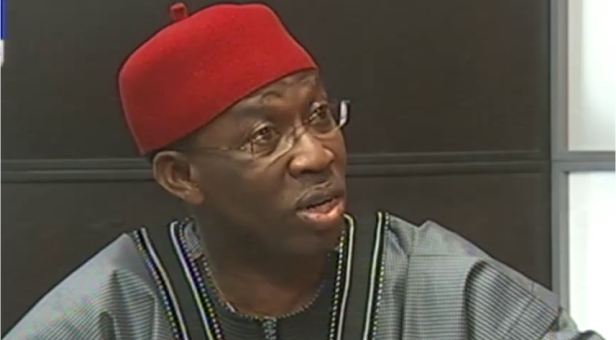Does Buhari Have A Plan To Improve Nigerian Economy?
- No (70%, 1,107 Votes)
- Yes (30%, 465 Votes)
Total Voters: 1,572
By Amos Igbebe
The Court of Appeal Holden in Benin, last Wednesday reserved judgement on the appeal brought by Candidate of Labour Party, Chief Great Ogboru and Labour Party, praying the appeal court to set aside the decision of Justice N.T. Gunmi led governorship election petition tribunal, Asaba.
Ogboru and LP are challenging the judgement of the Delta State Governorship Election Petition Tribunal, Asaba, which on October 25thupheld the declaration of Dr. Ifeanyi Okowa of the People’s Democratic Party (PDP) as winner of the April 11 election by the Independent National Electoral Commission (INEC) noted that the judges erred in law.
Ogboru had filed a 22 grounds of notice of appeal filed by his counsel Mr. Dele Adesina, (SAN) on November 12th, 2015, with Petition No: EPT/DT/GOV/23/2015; noted that if the lower tribunal properly evaluated evidences brought before it by the petitioner they would have arrived at different decision.
Addressing journalists after parties have adopted their briefs, counsel to Ogboru, Mr. Adesina (SAN) stated; “it is the position of the appellant that the decision of the lower court was wrong because the evidence before the lower tribunal was not properly evaluated, and that the lower court admitted inadmissible evidence and relied on them to arrive at their judgement.
He added that, “We urged the Appeal court to expunge those inadmissible evidences, because it is our contention that if that legally inadmissible evidence were not admitted the decision of the lower tribunal would have been different”.
“We also said that tribunal failed to resolve all the issues canvassed before it, the law is that the court of first instance must resolve all issues brought before it, for example we submitted that the result of the governorship election in Delta state on April 11, 2015 was post dated, was prepared in advance and there is nowhere, where tribunal said anything about it.
“Whether they believe or not, we are saying that they are bound to make pronouncement on it, and that failure to make a pronouncement constitute an error on their part, and haven regard to the evidence before the court which was not challenged at the tribunal, we urged this court to accept the position of the petitioner that result was prepared in advance.
“We cited many authority including the decision of court of appeal on senator David Mark, which nullified his election on the account that the result was postdated, like that of Delta state where result shows that it was collated on April 11, which was on Saturday, whereas collation took place on Monday 13th of April 2015.”
He stated further that; “on the issue of card reader, legal authorities have established that the card reader represent an important element to prove whether there was compliance or non-compliance with the electoral act, or whosoever that was declared winner scored the highest number of lawful votes, because the card reader contain the numbers of accredited voters, and the law is that where result of any polling unit is more than accredited voter, such units results are voided.”
Noting that “The evidence of RW1 relied on by the tribunal was oral evidence of official acts of INEC without any official document from INEC. The evidence of RW1 was inadmissible oral evidence of the official acts of INEC, RW 1 gave incredible and unreliable evidence.
Ogboru also stated that, “The Lower Tribunal misdirected itself, which misdirection occasioned a miscarriage of justice, when it placed heavy reliance on the uncorroborated and unsubstantiated evidence of RW1.
He therefore urged the Court of Appeal to allowing the appeal, and set aside all parts of the judgment challenged in this appeal, adding that all cross appeal by the respondents be dismissed for lacking in merit.
However, the Chairman of the five-man panel of Appeal Court Judges, Justice Uwani Abba-Aji have reserved judgement following the adoption of written addresses by counsels to the respective parties, stating that the date of judgement will be communicated to them







